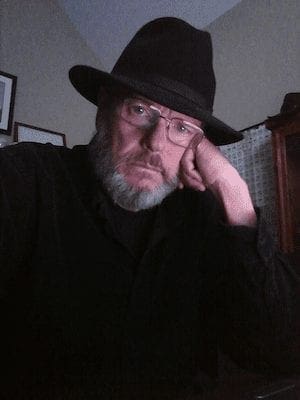Is it time for Christians to abandon public schools? That question was posed last month in The Charlotte World, a North Carolina-based Christian newsletter. Warren Smith, editor and publisher, went on something of a tirade about the state of public education in America. He believes that because prayer and Bible reading are prohibited in public schools, children are at risk from all sorts of secular evil.
To bolster his arguments, Smith quoted the great reformer, Martin Luther: “I am much afraid that schools will prove to be the great gates of hell, unless they diligently labor in explaining the Holy Scriptures, engraving them in the hearts of youth. I advise no one to place his child where the Scriptures do not reign paramount. Every institution in which men are not unceasingly occupied with the Word of God must become corrupt.”
Smith, along with many evangelicals, believes Bible reading and prayer can protect believers and their institutions from the corruption Luther fears. Since the Constitution prohibits this activity, however, Smith advocates Christians removing their children from public schools and educating them in home schools or Christian private schools. Quoting from Let My Children Go, an evangelical critique of public education, Smith writes: “The biblical instruction of our children may be the thrust that God could use to restore American society and revive the nation.”
Oh, if it were only that easy. Don’t get me wrong, I am a Bible believer, too. But experience along with common sense teaches that even people who read the Bible make mistakes—sometimes big mistakes.
Take Luther, for example. For all of his high-minded words about the Bible, Luther profoundly hated Jews. Blame it on German culture, blame it on Luther’s upbringing, blame it on whatever you want. The simple fact is Luther was possessed of an evil prejudice that Bible reading did not eradicate.
Or consider John Calvin, another Bible-reading reformer. In 1553 Calvin ordered the execution of Michael Servetus, a Spanish physician, for the crime of heresy. Servetus did not believe in the Trinity, hardly a capital offense.
Blame it on a crazy time in history, blame it on a lack of historical perspective, blame it on whatever you want. The simple fact is Calvin was possessed of a murderous evil that Bible reading did not eradicate.
We could stump around history finding other examples of Bible believers who violated the Bible. Our own nation was subjected to a bloody civil war partly because biblical literalists argued that slave ownership was ordained by the Bible. But there are contemporary examples as well.
Borrowing Luther’s phrasing we might say that Jim Bakker and Jimmy Swaggart were “unceasingly occupied with the Word.” At least every time I heard them, the Bible was the main topic of conversation. Both of these men, however, were possessed of personal demons that Bible reading did not eradicate.
We might reflect on recent developments within the Roman Catholic Church, a group somewhat connected to the Bible. We could talk about Protestant clergy sexual misconduct. We could try to understand why the incidence of divorce in the Bible Belt, where divorce is considered unbiblical, is higher than in any other part of the country.
By now the point is surely made. Simply because we read the Bible does not mean we are automatically transformed into sinless, flawless human beings. Bible readers remain subject to sin, and their institutions subject to corruption.
It’s almost as if evangelicals are trying to storm their way back into the Garden of Eden. They don’t like it here in the land of Nod. They don’t enjoy living in a fallen world. They read the Bible, they know about paradise, and they want back in.
But the way is blocked. Call it a “flaming sword,” call it human nature, call it whatever you want. The fact is we are all possessed of a dark nature that Bible reading alone will not eradicate.
So what does this mean? Are we doomed to live flawed lives of sinfulness? Well, for the most part, yes we are. At least that’s what the Bible says.
But the Bible also says there is hope. There is hope when people of faith come to accept their flawed sinfulness as the nature of reality. When we do that, it is harder for us to be self-righteous with one another.
The Bible also says that our flawed sinfulness is forgiven by a gracious God. Realizing that helps keep down the spiritual arrogance of thinking we achieved something on our own.
Being free from self-righteousness and spiritual arrogance, we are finally in a position to join other flawed human beings in the business of building community. We can struggle, as Jesus predicted we would, to be in the world, but not of it. We are free to join hands with fellow strugglers, believers and non-believers alike, and work for a good that is common to all of us.
Call it secularism, call it pluralism, call it whatever you want. The fact is we live in a fallen world. Building a bunch of Bible-reading private schools is not going to change it. In fact, given our propensity for self-righteousness and spiritual arrogance, it might actually make matters worse.
James Evans is pastor of Crosscreek Baptist Church in Pelham, Ala.

